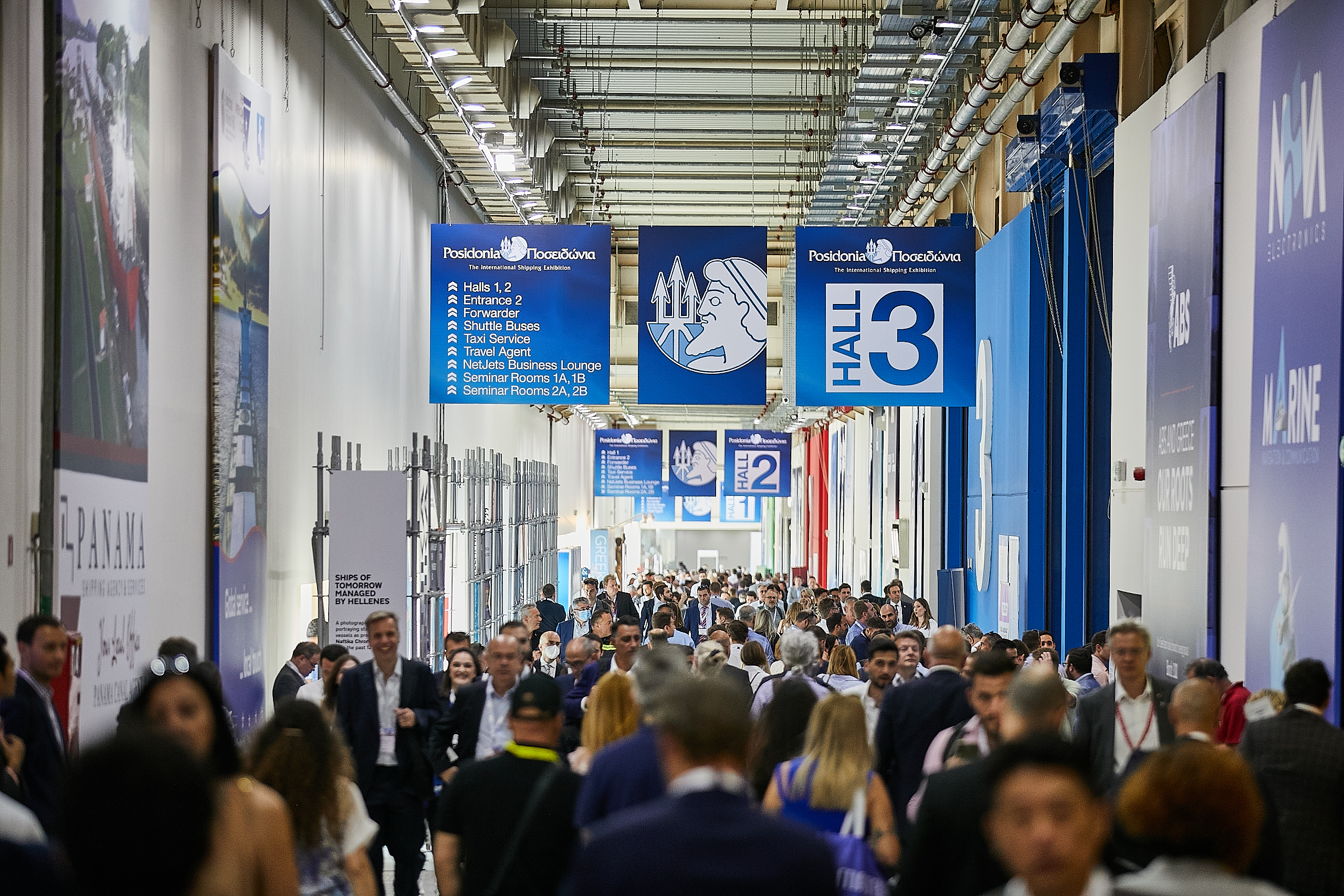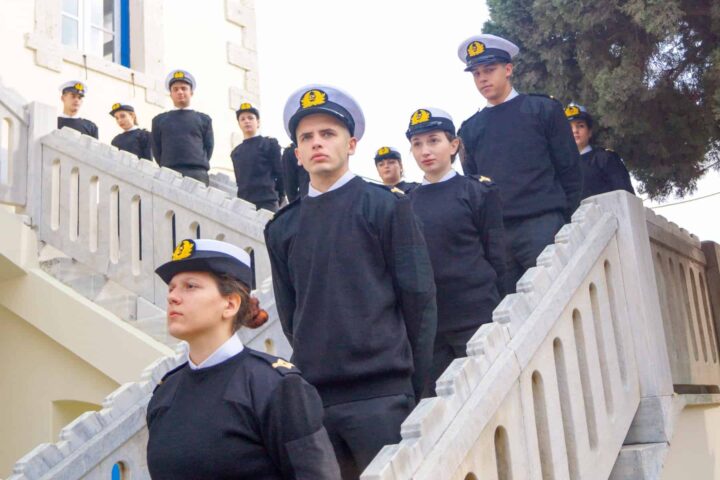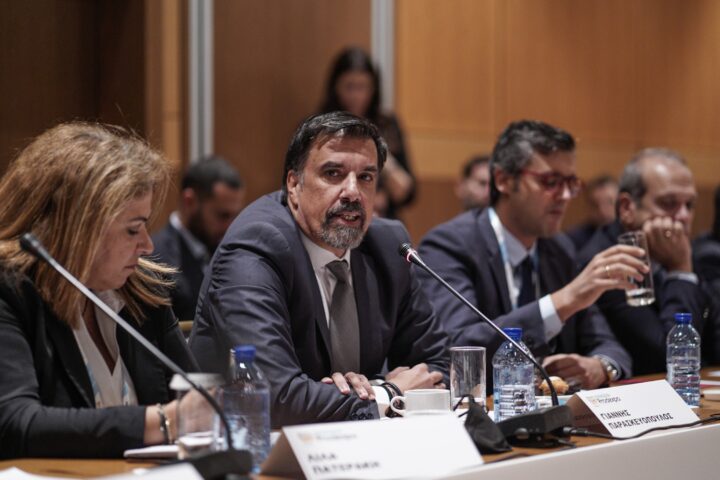As Greece welcomed back the “Posidonia” international shipping exhibition at the Athens Metropolitan Expo after a four-year absence because of the pandemic, market conditions have changed, including energy.
With energy commodities forming a big chunk and certainly the most critical of maritime trade, interest is high among shipping companies, marine engineers, shipyards, banks, and operators on the future role of energy in shipping.
At the inaugural ceremony in front of a 1,000-strong audience, Prime Minister Kyriakos Mitsotakis praised the Greek shipping industry for its sizeable contribution to the country’s GDP, estimated at 7% and 200,000 jobs created for Greek citizens.
But far more important is the role of Greek shipping in opening roads of innovation and enterprise since they control almost 20% of global tonnage, a third of the international tanker fleet and 25% of LNG and chemical vessels.
A recurrent theme among the speeches and during the 70 or so seminars and workshops organised parallel to the exhibition is the key role of low carbon transport technologies and the need for the gradual transformation of vessels into less energy consuming and less polluting ones.
Speakers clarified their concerns over “ambitious” and “unrealistic” EU goals and impractical regulations, with the need to decarbonise eventually requiring a level playing field.
The “NetZero50” target, conceived by international bureaucrats to harness future energy developments, has not won much support in today’s highly competitive shipping world.
Speaking during a press conference at Posidonia on Friday, Melina Travlos, President of the Union of Greek Shipowners, underlined: “Europe needs to understand the strategic importance of Greek shipping as the owner of 59% of the EU fleet, especially in times when shipping can play a crucial role in the continent’s scramble for energy independence.”
“Energy transition is the most important issue for us.
“What Europe does with decarbonisation regulations, such as ‘Fit for 55’ and the Emissions Trading System (ETS), must be guided by the need to preserve and promote the competitiveness of European shipping as a whole.
“Certain decisions may be detrimental to our industry and could risk losing our competitive edge against competition from Asia and other regions.
“We want a global solution and not one that is only impacting specific regions. We want realistic solutions that safeguard navigation safety.
“Through memberships in various organisations, Greek shipping is present in every international forum where we always try to help the implementation of the right policies for the industry.
“Europe insists on Fit for 55, whereas we insist that the solution must be international within a framework set by the International Maritime Organisation (IMO).
“Traditionally, Greek shipping is the first to invest in new technologies and new vessels; therefore, we will also be the first to adopt any new solutions once they are made available to us.
“Any new fuel or technology comes at a cost, ultimately passed on to the end consumer. This needs to be made widely known.
“We will continue to defend the position and interests of Greek shipping.
“We want people to understand the importance of shipping in our everyday lives because the industry is not just a business, but a strategic partner for every country, every government.
“This is something that is not clear, and we want to help fix it,” said Travlos.
Current reservations by financiers and shipowners against ultimate net-zero energy solutions as applied to shipping do not necessarily mean that they are against change and an eventual move towards “green” shipping.
However, operators would like first to see other far more important and urgent aspects of modernisation, such as full digitalisation of operations, improved safety standards, updating of crew and manning regulations, as they need to precede before serious commitments are made to low carbon solutions.
Eye opener
This year’s Posidonia was also an eye-opener because the latest technologies were on display, including carbon capture solutions, electric propulsion, decarbonisation techniques, hydrogen and ammonia powered systems, LNG powered engines and so forth.
As most shipping executives tend to agree, the curve leading to low carbon solutions is uncertain at this stage and likely to spread over the next 20-30 years.
But the message is very clear as there is no turning back on the road towards cleaner fuels and low carbon technologies in ships.
Posidonia proved the biggest ever and exceeded all expectations with 2,000 exhibitors showcasing products and services from 80 countries.
Theodore Vokos, Managing Director of Posidonia Exhibitions SA, said: “This has been by far the most successful Posidonia in the event’s history.”
“The innovation presented on the exhibition floor has indeed been ground-breaking, the knowledge imparting during the various conferences and seminars was inspirational, and the volume and quality of our visitors surpassed everyone’s expectations.
“It’s thrilling to be back with such a positive impact.
“We are thankful and grateful for the unwavering support of the global maritime community.”
Costis Stambolis is a Financial Mirror correspondent based in Athens










